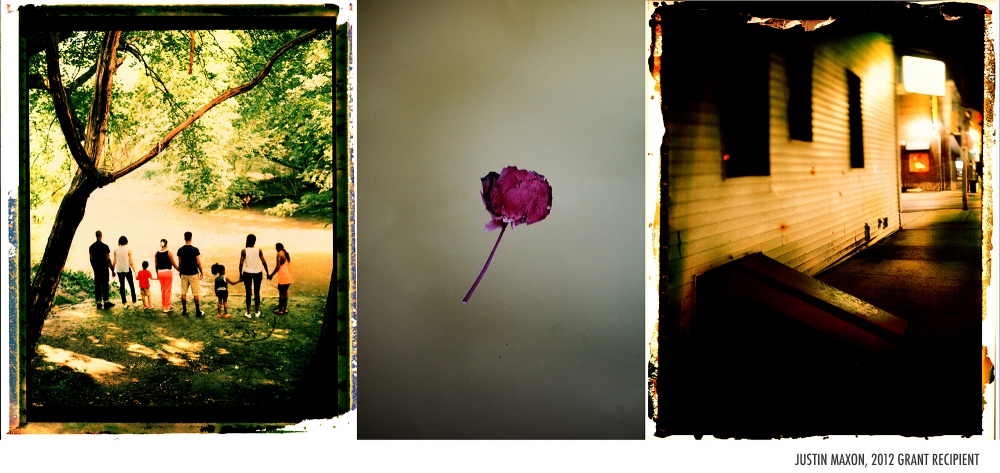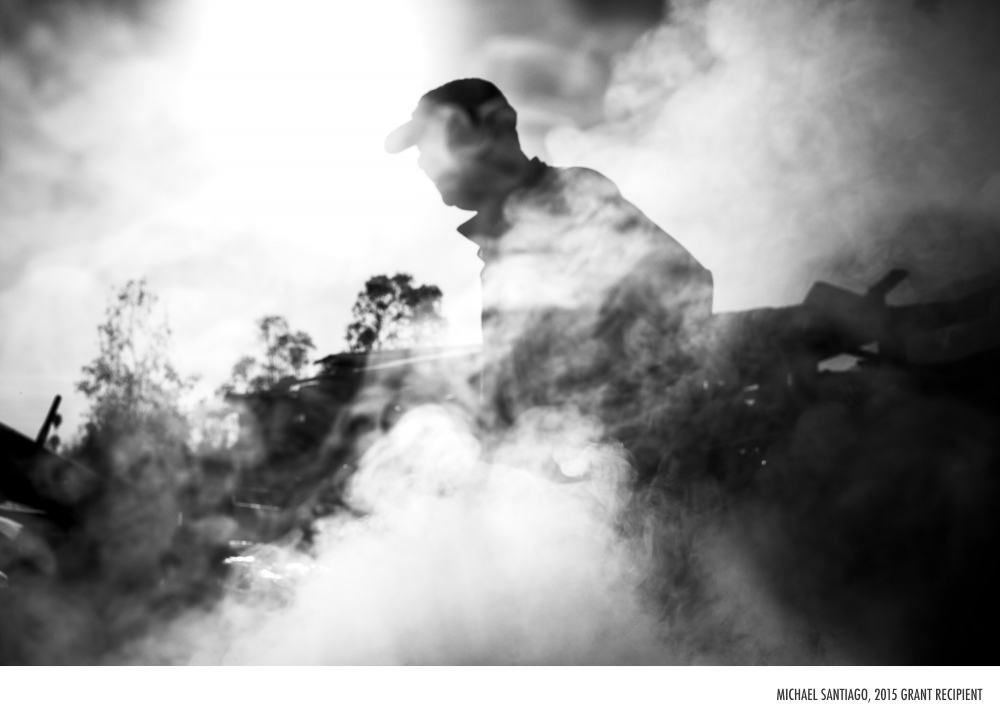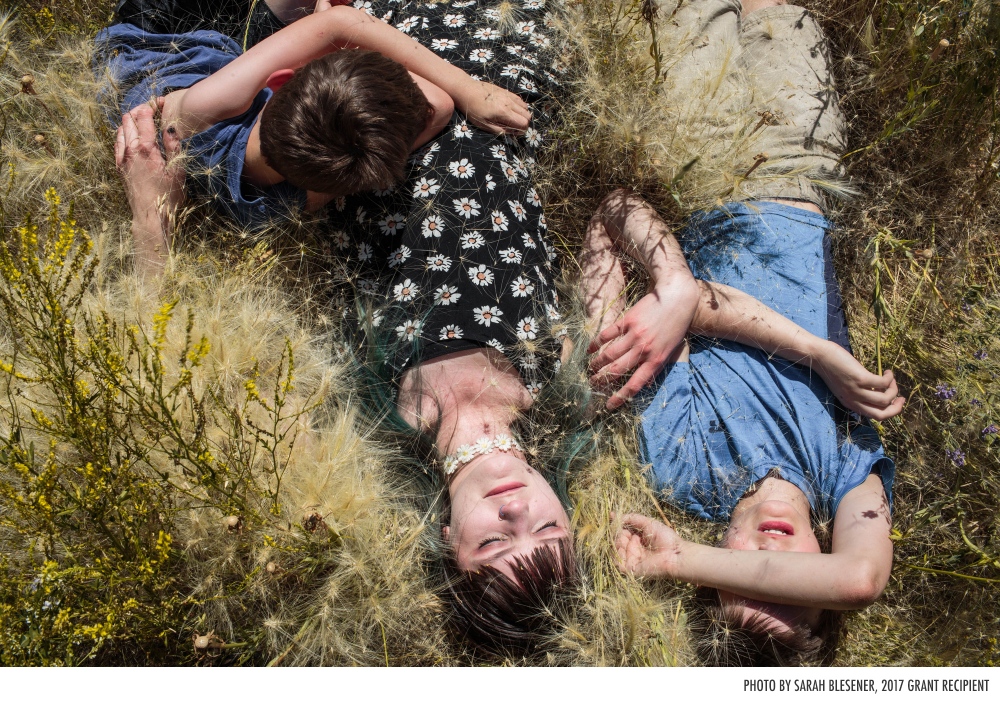News
Spotlight
Interview | In Conversation with Mike Davis at The Alexia Foundation
adriana teresa letorney
Jan 19, 2019
Visura Founder Adriana Teresa Letorney in conversation with Mike Davis.
Adriana Teresa: What is the mission of the Alexia Foundation Grants?
Mike Davis: The grant exists to help professional and student visual storytellers produce work that matters.
Peter and Aphrodite Tsairis created the grant in honor of their daughter, Alexia, who was among 35 Syracuse University students who died aboard PanAm Flight 103 over Lockerbie Scotland in 1988. Alexia was a photojournalism student at SU’s Newhouse School, which administers the grant competition.
AT: Who can apply for the Grant?
Mike Davis: Anyone in the world may apply, either professional people who make at least half of their livelihood from producing imagery - or students who are actively engaged in their education.
AT: How can photojournalism serve as an agent for change?
Mike Davis: Photojournalism is a word I use less and less because it feels incomplete as a term to describe the type of work that the grants support. The term was created to show that images could pair with what words said in specific, print publishing environments using a narrow approach to the creation of images.
What was photographed was what mattered; how it was photographed was less important and often generic in approach.
Photojournalists, or better, visual journalists or visual storytellers are the driving agents to bringing about change, not by themselves but most often in collaboration with other people and organizations who have the apparatus to make things happen. The keys are the relevance of the topic and how a visual journalist approaches the creation of work that expresses things about that topic that makes people care, or at least raises an eyebrow.
AT: What does the Alexia Grant look for in a photographer and his or her stories?
Mike Davis: There are many things that increase the likelihood of receiving a grant. Here are a few of the things I’ve heard judges consider/ask the past four years: Why should the project be done now; what does it matter; how well is the proposal written; how clear is the outcome of the project; will the visual journalist be able to accomplish the project; is her imagery strong?; does the visual journalist demonstrate an expertise in the topic; are there partnerships in place that increase the likelihood of change happening because of the project; is the topic over covered or lesser known?
AT: How does the Alexia Foundation encourage diversity and respect towards cultural differences both amongst photographers and their stories?
Mike Davis: The choice of judges is a critical aspect of encouraging diversity and being sensitive to things beyond a caucasian U.S. perspective. The more and varied experience the judges bring to their selection process, the more respectful the Foundation can be in recognizing globally aware projects.
Expanding the reach and number of voices in the process is an ongoing effort.
AT: What are key values you look for in photographers? And what efforts do you make to get to know the photographers you work with to guarantee they represent these values?
Mike Davis: Here too, the choice of judges affects what type of work will be recognized and that work usually reflects the people who made it. Looking at previous recipients, I’d say that these are among the qualities that they possess: compassion, curiosity, unending desire, intellectual prowess, passion, creativity, uniqueness, voice.
Judges’ selections are final unless through a CV and reference follow up we learn that there is a reason to be concerned about a visual journalist’s credibility. We’re also this year reserving the right to request original files from the finalists to help ensure they meet ethical standards.
AT: Photojournalism is an agent for change—True or False. If true-describe how and please give an example of how a past recipient of your Grant has done this.
Mike Davis: False. But true for photojournalists.
Marcus Bleasdale, Ami Vitale, Stephanie Sinclair, Mary Calvert, Tim Matsui and Louie Palu are among the grant recipients whose projects have resulted in the greatest change or were launching points for further powerful work. In every case, they collaborated with others to expand the reach of the project, which then created change.
AT: What's the Alexia Foundation stand on merit-based opportunities?
Mike Davis: By definition and practice the Alexia Grant for students is a merit-based award. Only the applicants quality of work and strength of the proposal are gauged.
The judging process is anonymous by design. Judges don’t know the names or any other aspects of the entrants unless they happen to have seen the work elsewhere before the judging.
The judging process is anonymous by design. Judges don’t know the names or any other aspects of the entrants unless they happen to have seen the work elsewhere before the judging.
The strength of what is proposed and the power of the applicant’s visual voice are what matter in considering grant recipients. We don’t tell judges who the work is produced by as they view submissions.
AT: In addition to being recognized—what is the advantage of receiving an Alexia Grant?
Mike Davis: In receiving a Grant, we say that the visual journalists become part of the Alexia Family, meaning that the Foundation becomes a proponent of the work of its recipients. As the Alexia Chair at Syracuse University and someone who has been a picture editor for 30 years, I also offer to help guide or offer feedback on projects as they progress, make connections within the profession to get the work published and other ways of supporting grant recipients.
Learn more about the Alexia Foundation Grants by visiting their website: www.alexiafoundation.org
The application deadline for the Professional Grant is Thursday, February 1, 2018 at midnight Eastern U.S. Time.
The deadline for the Student Grants is Thursday, March 1, 2018, at midnight Eastern U.S. Time.
TESTIMONIALS
Sarah Blesener (2017 Winner)
The support of the Alexia Professional Grant has enabled me to commit to a topic and project wholeheartedly, allowing me to dig deep into the stories I am pursuing. For my project, it has meant discovering new narratives beyond the surface, it has meant challenging my stereotypes and preconceived ideas that I brought with me. As a recent graduate and an emerging photographer, the Alexia Professional Grant has empowered me not only financially, but also with the support of a network of individuals offering a community, critique and support throughout the process.
Aaron Vincent Elkaim (2016)
The Alexia Foundation Grant is more than simply a grant to continue a project; it is a welcome to the Alexia Family, a group of amazing people, including past grantees, who work to further the foundations' goals of supporting photographers to create stories that drive change. After receiving this grant Mike Davis, the Alexia Chair was available if and when I needed him. He was an ear to bounce ideas on how to proceed and a set of trained and trusted eyes in the editing process. Eileen Mignoni was amazing in helping with outreach and promoting the work. Most importantly, the grant allowed what freelance photographers need the most for personal projects, the time and resources to fully engage in the necessary fieldwork. The work that was completed during this time contributed to its publication in both National Geographic and Univision, as well as helped secure publication in a number of other places including Marie Claire and Macleans Magazine, Time Lightbox, and the NYT Lens Blog. It’s difficult to say exactly how the exposure has impacted my career in the long term, but since receiving the grant I’ve become a regular contributor to the New York Times, and I have also received two assignments in Brazil that relate to the project theme for The Globe and Mail newspaper. Careers are made from stepping-stones, and receiving the Alexia grant certainly feels like it has been a significant one.
Michael Santiago (2015)
When I decided to go back to school 10 years after initially dropping out, I enrolled at an art school in San Francisco and had the fortunate opportunity to learn under Darcy Padilla, who was one of the first students to win the Alexia foundation student grant. Under her mentorship, I switched my focus from art photography to photojournalism, something that I welcomed. To me working on human interest stories made me feel that my images could now have a more meaningful impact. It was also at that time that I started to doubt myself. I wasn’t sure what I was going to do after graduation. I didn’t feel that I was ready to jump into the industry nor did I feel that I was prepared to do so. For me, the next logical step was to go graduate school. I wasn’t sure how I was going to pay for it nor make it happen since I would not be able to get help from family. All of these thoughts were happening during the weekend of 2015 Alexia foundation judging. I convinced myself that I was passed over for it and that I needed to work harder. That following morning I received a call from a number that I didn’t recognize who turned out to be Mike Davis the chair for The Alexia Foundation at Syracuse informing me that was not passed over and was indeed the 2015 Alexia Foundation student grant winner. Since then I am one class away from receiving my master's degree, have won other well notable grants and fellowships and have been published by various publications. All were made possible because the Alexia foundation gave me the help and confidence to continue to pursue my passion. Till this day, they continue to support me and my work and I am extremely grateful to have the support of the Alexia Foundation family.
Justin Maxon (2012)
Receiving the Alexia Foundation Professional Grant represented one of the most rewarding periods in my life and career. The Foundation treated me like family; the founders, Peter and Aphrodite Tsairis are some of the most generous and embracing people I have ever had the pleasure of meeting and working with. The financial support the Foundation provided was just the beginning; they organized a number of group exhibitions, in NYC and Bermuda, and invited me to talk at both events. By far one of the best experience of my life though was when they invited me to South Africa for a two-week cultural exchange seminar which was sponsored by the U.S. State Department. Together with other representatives of the Foundation, we taught over a half-dozen workshops and gave upwards of 16 lectures throughout the country. The people we shared experiences with were extraordinary and never to be forgotten.I can't thank the Tsairis's enough!
Alexia Foundation : Grants






